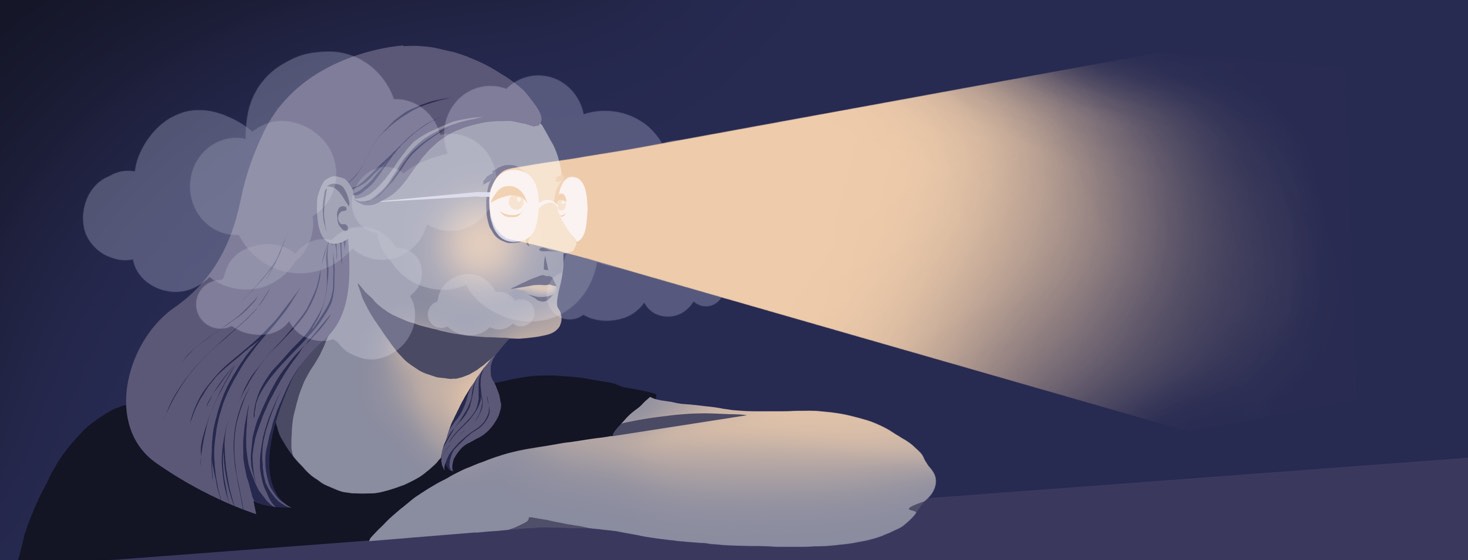How I Combat Brain Fog: Part 1
This article is Part 1 of a 2-part series on managing brain fog. Read Part 2 here!
Brain fog is perhaps one of the most inhibiting symptoms of narcolepsy. It feels different for everyone. I’ve heard friends with narcolepsy describe their brain fog in ways that I’d never thought to.
How narcolepsy brain fog impacts my life
In my case, brain fog makes it difficult for me to understand what people are saying. As a hard-of-hearing person, I have always struggled to understand verbal speech. A lot of listening for me is taking pieces of words that I can gather with my little hearing and putting them together into a puzzle that is legible speech. To do so, I have to use everything at my disposal – physical cues, environment, and context.
When I have brain fog due to my narcolepsy, this language puzzle of mine becomes much more difficult to solve. Sometimes my listening fatigue kicks in and all I hear is gibberish because I cannot force my brain to “turn back on” and start solving word puzzles. This is one way in which my brain fog continues to impact my life.
Recovering focus again even with narcolepsy
Since finding an adequate medical treatment plan, I have found slight improvements in my brain fog. For one thing, I can focus for a longer period of time. Reading chapter books became impossible for me when my narcolepsy symptoms first onset.
My brain fog gets so bad during sleep attacks that I end up confused and disoriented. Once I started taking Wakix I found that focusing is easier. I have finally been able to start reading books again, which is something that enriches my life greatly.
Techniques for managing brain fog with narcolepsy
I still struggle with brain fog, though at a lesser severity. For me, it is difficult to control once it starts kicking in. I wish it was a symptom with an easy fix, but unfortunately, narcolepsy doesn’t come with any of those. I’ve learned a few techniques that help me live with this symptom, including the following:
1. Write EVERYTHING down
Do I need to buy more shampoo? Better write it down. Is tomorrow trash day? I’ll jot it in my notepad. Do I need a shower? It’ll be on my to-do list for the day.
Writing things down keeps me from forgetting them, and it is absolutely necessary. It can be a lot of work to take so many notes, but in the end, it leaves me feeling more relaxed because I know I won’t forget things.
I can’t control my brain fog, but I can control how I live my life around it.
2. Exercise
Need a cheap, easy fix for brain fog? I’ve found that just a few minutes of exercise, such as a brisk walk around the block, is enough to get my blood pumping and my brain processing efficiently.
My brain fog doesn’t just go away with exercise, but it does improve. The trick is to not wear myself out so much that I get a sleep attack and WORSE brain fog!
What strategies do you use to live with your own brain fog symptoms? Share with our community in the comments below!
To be continued in Part 2!

Join the conversation